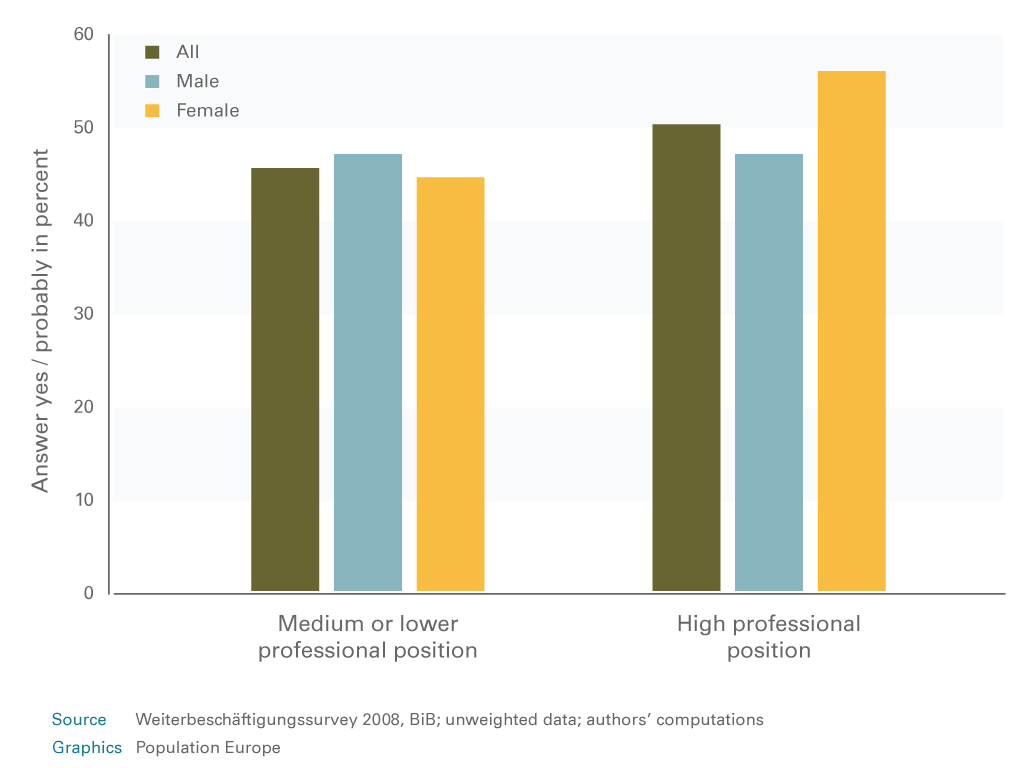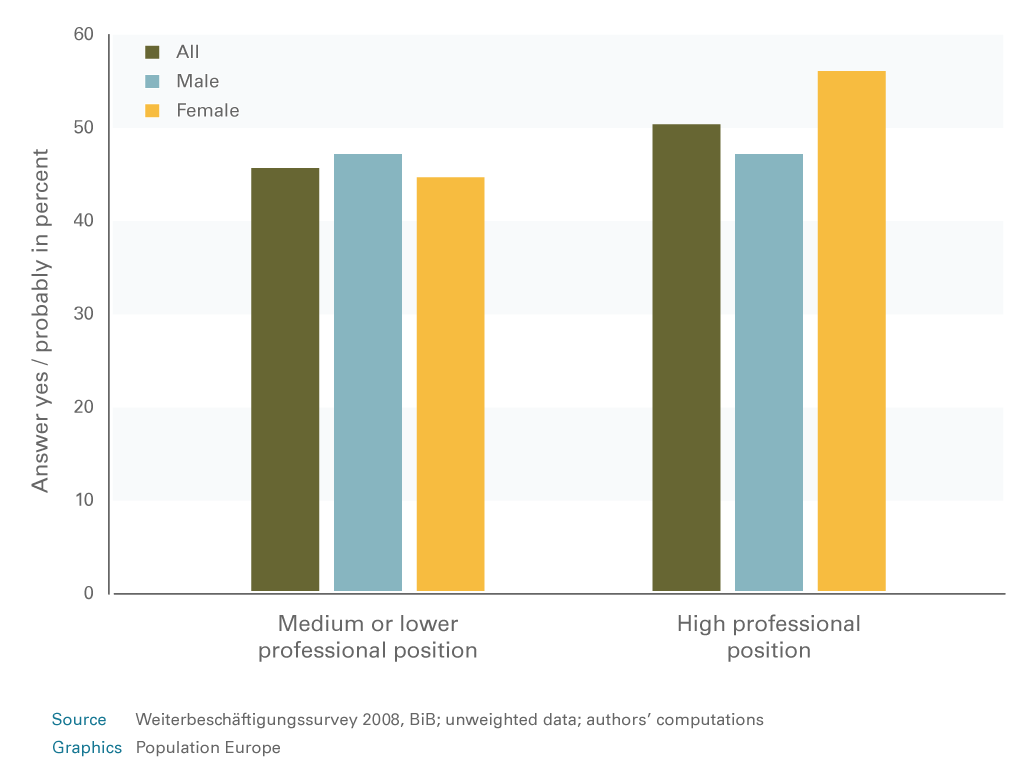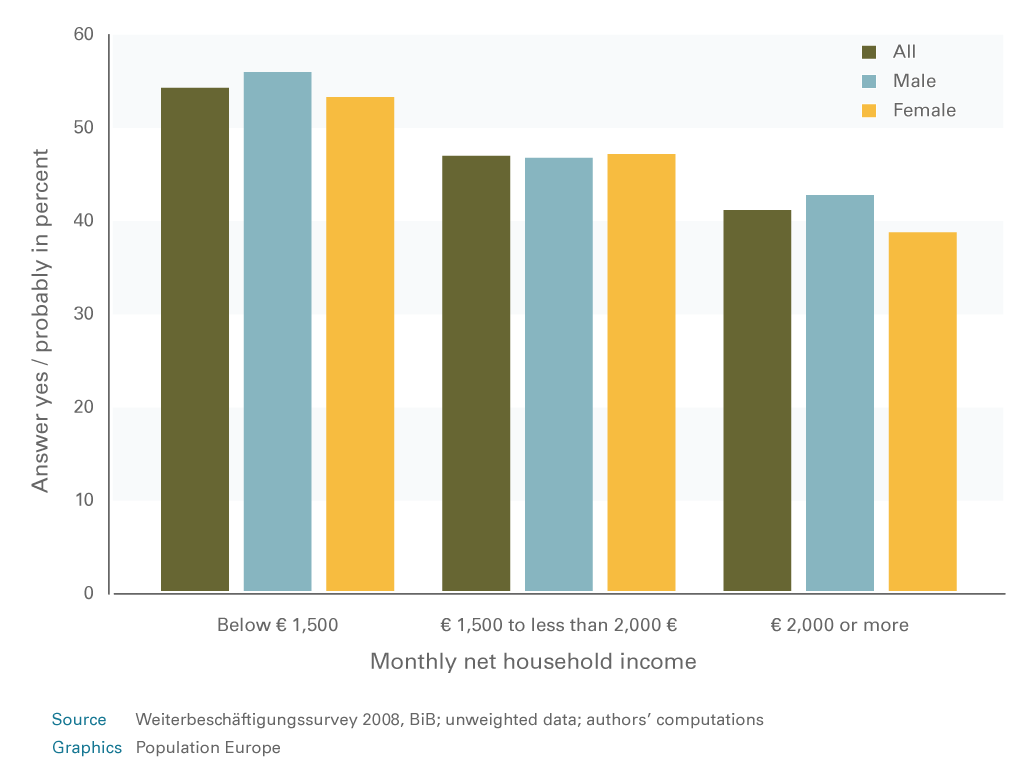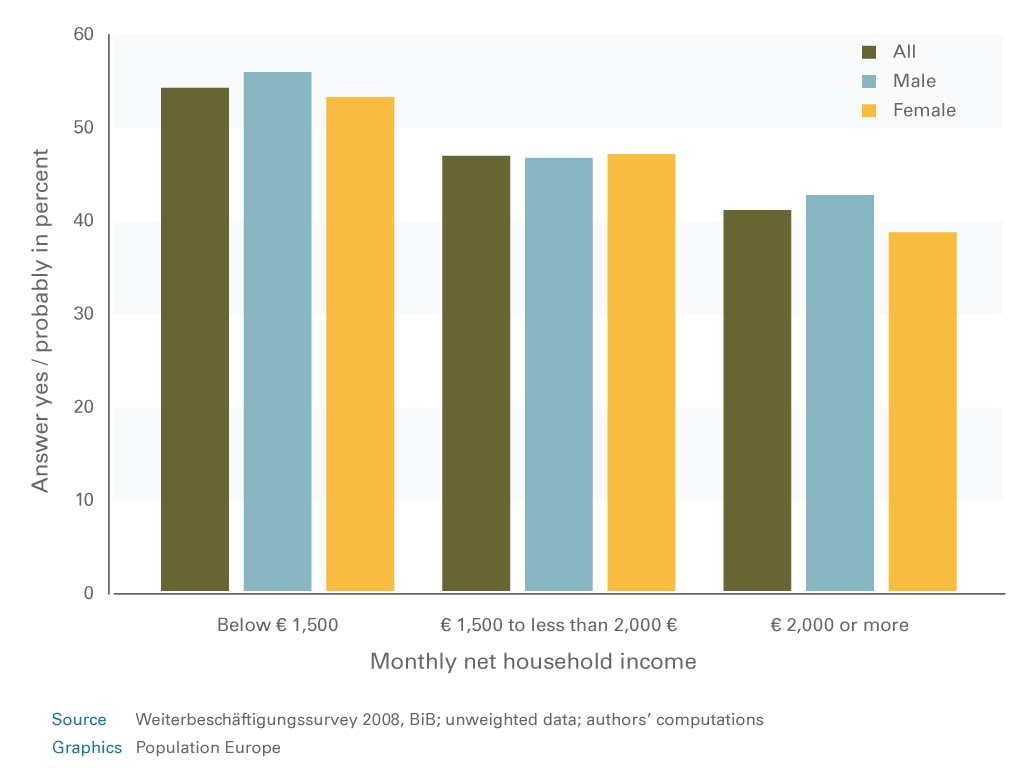There is no way back - the generation of German baby boomers will soon enter retirement age. This development will probably peak between 2020 and 2030. It will cause immense financial burdens for the younger working generation if the baby-boom generation retire early. However, there has been little public discussion about the extension of the working phase beyond the age of 65. Researchers Frank Micheel, Juliane Roloff, and Ines Wickenheiser find out how socioeconomic status influences the willingness to stay longer in the workforce.
A shift in attitudes towards retirement
For a long time there has been a trend to retire early in Germany. The predominant opinion was: old people are less efficient and they should rather make space for young, motivated workers. But today’s old people are different from yesterday’s in regard to health, living conditions, and financial security. Most pensioners now spend a big part of their retirement phase in a very healthy condition. The average older person has more resources available, they are active, and productive.
But whether these “young old individuals” also want to work beyond the age of 65 is another question. Which criteria are crucial when it comes to willingness to work longer? Is the socioeconomic status a determining factor? In order to answer these questions, the so called “Weiterbeschäftigungssurvey” (Continuing in employment in retirement age) asked 1,500 dependent workers aged between 55 and 65. Social status was determined by the professional rank, i. e. position in the company, and by monthly household income.
Willingness to work longer
Autonomy, relationships at work, working environment, and flexibility seem to play a major role in their decision to work longer. The majority would prefer flexible working hours, they want to decide for themselves when to work, and they do not want to work every day. This result corresponds with the working hours of the survey respondents. There is an observable trend: with falling weekly working hours, the share of those who wish to continue to work for longer increases. On average, the respondents were willing to work 4.1 years longer after retirement for about 15.1 hours per week.
At 55 years of age, one can probably not imagine working for another ten years, but then at 65, when retirement comes knocking on the front door, many do not want to quit from one day to the next. The outcome of the survey supported this. The older the respondents, the willingness to continue working rise.
Company factors
Working conditions do play a role. The willingness to work longer tends to be higher for those employed in smaller enterprises. Those who are employed for less than ten years are more willing to stay than those who have been working for the same employer for more than ten years.
Yet, working conditions played a less important role than expected. One would expect that people who used to work in physically and mentally strenuous jobs would not want to continue longer than they have to. But even those, who did work in poor, meager conditions, are not less willing to work longer than persons with very good working conditions. Interestingly, there were only slight differences, which are statistically insignificant. This result can partly be explained by the so called healthy worker-effect. It means that the working population compared to the general or non working population exhibits a better health state in order to be able to work.
When it comes to previous unemployment, those who have experienced unemployment before are more interested to continue working longer.


Figure 1: The spread of plans to continue in employment in retirement age by professional status
Status and income – less important than expected
The authors expected that the willingness to postpone retirement would increase with higher positions in the company, and that it would fall as the disposable household income rises.
They also assumed that the position within the company would play a more important role for men’s willingness to continue in employment because of their more pronounced preference for autonomy at work. But the results show the contrary. A much larger share of women with high professional status states that they wish to remain in employment after the transitions to retirement age than women who had a low or a medium professional status. On the other hand, there was no similar difference among men, across the various professions. Therefore, professional status seems to play a more important role for women. As a matter of fact, the authors find that socioeconomic differences are only significant for women Thus, gender matters in the employment conduct of retirees (see Figure 1).
In relation to household income, the wish to continue working is indeed greater the lower the monthly net household income of the person is. The findings indicate, in particular, an economic incentive to continue in employment in retirement age (see Figure 2).


Figure 2: The spread of plans to continue in employment in retirement age by net household income
Recognising frameworks and using them
Helping and motivating future pensioners to stay in the workforce longer is an important target for policy makers. Micheel, Roloff, and Wickenheiser show a few frameworks that reflect the determining factors for the decision to work longer. Greater autonomy, more flexibility, reduced and flexible working hours, and a free choice of work place are important for the majority.
This PopDigest is also available in French, Spanish and German.
This volume has been published with financial support of the European Union in the framework of Population Europe.